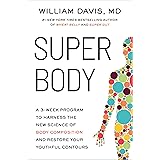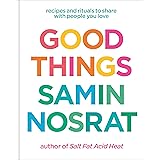Estimates suggest that global animal agriculture accounts for nearly 15% of all human-caused greenhouse gas emissions. Yet, this environmental impact is just one facet of a much deeper, more personal struggle for many individuals. The young woman in the video above succinctly captures an profound emotional truth for many. She articulates that the hardest part about being vegan is not the food choices. Instead, it is realizing that people you love support animal exploitation. This deeply personal realization strikes at the core of one’s ethical framework.
The Ethical Foundation of Being Vegan: Beyond Dietary Choices
For many, being vegan extends far beyond a diet. It represents a commitment to animal rights. This philosophy recognizes animals as sentient beings. They experience pain, fear, and joy. Their lives hold inherent value. Yet, societal norms often categorize animals as commodities. We use them for food, clothing, and entertainment. This distinction creates a moral inconsistency for many ethical vegans.
Animal agriculture routinely involves immense suffering. Animals are often confined in cramped conditions. They endure painful procedures. Their lives are cut short for human consumption. Understanding this reality is a prerequisite for ethical veganism. However, internalizing this truth presents a significant emotional burden. It shapes one’s entire worldview. This deep ethical stance is central to the challenge described.
Understanding Speciesism and Its Impact
The concept of speciesism is central to this realization. Speciesism is discrimination based on species membership. It assigns different moral worth to beings based solely on their species. For instance, society condemns cruelty to dogs or cats. In contrast, similar or worse treatment of pigs or chickens is often acceptable. This double standard creates a profound ethical dilemma. Vegans perceive this as an arbitrary distinction. This framework underlies the video’s poignant statement.
Recognizing speciesism highlights the ethical inconsistency. It forces a re-evaluation of our relationship with animals. Most people would never pay for a dog to be “enslaved, exploited, and murdered.” Yet, they regularly purchase animal products. These products come from animals subjected to similar or worse fates. This realization makes being vegan profoundly challenging. It casts a shadow over everyday interactions.
The Emotional Toll: Loved Ones and Cognitive Dissonance
The video points to a specific pain point. It highlights the involvement of loved ones. These are people we trust and care about deeply. They are our family members and closest friends. They may not share this ethical perspective. They continue to participate in animal consumption. This creates significant emotional distress. It leads to feelings of isolation. This struggle is a common experience for ethical vegans.
Cognitive dissonance plays a major role here. It is the mental discomfort of holding conflicting beliefs. Non-vegans may love animals. They likely care about justice and compassion. However, their actions often contradict these values. They fund industries that exploit animals. For vegans, this creates a profound disconnect. It feels like a betrayal of shared values. This can strain even the strongest relationships.
Navigating Social Gatherings and Family Meals
Social situations become complex minefields. Holidays, birthdays, and casual dinners are challenging. These events often center around food. Non-vegan options dominate the menu. Vegans might feel like outsiders. They often face questions or jokes. Sometimes, they encounter outright hostility. This constant negotiation is draining. It reinforces the sense of being “different.”
Seeing family members enjoy animal products can be painful. It serves as a constant reminder. They are supporting a system you morally oppose. This isn’t just about food preferences. It is about a fundamental ethical disagreement. The hardest part about being vegan in these moments is the feeling of helplessness. You wish your loved ones would see what you see. Yet, often they do not.
Coping Strategies for the Ethical Vegan
Living with this awareness requires robust coping mechanisms. It demands emotional resilience. Finding support is crucial for long-term well-being. Connecting with other vegans helps validate feelings. It reduces the sense of isolation. Many online communities offer understanding and advice. These connections are vital resources. They help navigate the complexities of being vegan in a non-vegan world.
Setting boundaries is also important. You can decide how much you engage in discussions. Not every meal needs to be an advocacy opportunity. Sometimes, quiet living is best. Focus on what you can control. Your choices make a difference. Every vegan meal sends a message. This individual action holds significant power. It aligns with your core values.
Effective Communication and Advocacy
Communicating effectively is a key skill. Avoid confrontation where possible. Instead, focus on sharing information calmly. Offer delicious plant-based food. Lead by example. Many people respond better to positive experiences. They are more open to new ideas. This approach fosters understanding. It can slowly bridge the gap. It makes the journey of being vegan more manageable.
Focus on common ground, not just differences. Most people agree on compassion. They believe in reducing suffering. Highlight these shared values. Frame veganism as an extension of them. This can open doors for dialogue. It humanizes the ethical choice. It also reminds you of the shared humanity. This approach reduces emotional strain.
Finding Strength and Community in Ethical Veganism
The journey of ethical veganism is often solitary. Yet, it also builds incredible strength. It fosters deep personal integrity. Choosing compassion against societal norms is powerful. This commitment reflects a profound moral compass. It showcases a dedication to justice. This inner strength helps manage the external challenges. It empowers those committed to animal rights.
Connecting with the global vegan community offers immense comfort. You are not alone in this struggle. Millions share your ethical stance. They understand the emotional weight. They celebrate the victories. They offer support during difficult times. This collective effort reinforces the positive impact. It makes the hardest part about being vegan more bearable. Together, we strive for a more compassionate world.











